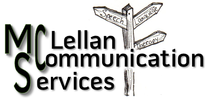|
Toddlers go through a stage of incredible language growth, especially from ages one to two years, Some babies may say their first real word as early as 8 months, and others will wait until around their first birthday, or later, to grace you with their first real words. But whenever those first words do come, children begin to gain new words all the time at a rapid pace.
If you are wondering what you can do to get your little one trying more words, then this post is for you. These three language rich activities are easy to do at almost any point in your child's day. Any time you are with your child is an opportunity to enrich language and vocabulary growth. These are all activities I myself have done with my own little girl who is 22 months! 1. Sing songs together. I tend to make up silly songs about everything. We even have our own special teeth brushing song! The nice part about it is that I have sung the teeth brushing song so many times, that my daughter knows it! It goes like this (to the tune of Row, Row, Row Your Boat): Brush, brush, brush your teeth, Brush them every day. Brush the back and brush the front Brush the plaque away. It's silly, but it works. You can make a song out of almost any routine. Many children (and adults too) learn and memorize better when the words are set to music! Songs can help make any routine or task more comfortable and familiar for your little one. If you're not comfortable making up your own songs, just singing simple nursery rhymes together is also a wonderful way to build language. Make sure you sing slowly so that your child has a chance to learn and participate. It's even better if the song has actions, so even really young ones without many words can contribute to the song. 2. Play turn taking games. What is a turn taking game? Well it's pretty much just like it sounds. It is any game or activity where the participants take turns performing the actions. Many common and objects can be used in a turn taking game. Make sure you use lots of language in your game. For example, if you have a large bouncy ball in your house, you can play this simple game together: Sit down on the floor and have your child sit across from you. Bounce the ball and say "ball!" then roll the ball to your child and say "Roll!" Have your child roll the ball back to you. At first, you will be saying the words for both of you every time. But eventually, your child might try to say some of the words too! It's ok if 'ball' sounds like "Baw" or something similar. First words often do not sound perfect. But they definitely count. 3. Read together. This one is probably something you have been doing for ages. It's worth mentioning here, though, because reading is such an important part of language development. Reading together is also a great way to spend quality time with each other. Books that you can interact with, like lift the flap books, or books with textures and materials, are great because it gives your little one a chance to engage with the book as well. As you read, you can stop and comment on the pictures. For example, in the Very Hungry Caterpillar, you could read the page and then say "Look at all the food he ate!" or "Mmm, that cake looks yummy." You can also ask your child questions about the story, but try not to 'quiz' them, as this can actually be a deterrent to saying new words. What I mean by quizzing is pointing to a picture of an apple, for instance, and saying, "What's that?" or "Can you say 'apple'?" As parents, it can be easy to fall into this trap. I have done it myself. It's best to ask more engaging questions such as "That apple looks tasty. Do you like apples? Do you like green apples or red apples?" These questions still reinforce vocabulary words and offer the potential for spontaneous responses. There are many ways to help your child learn to say new words. I hope these three activities will give you an idea of some easy activities you can do in your home to support language growth. Remember, if you have concerns about your child's language or speech, it never hurts to ask. A Speech-Language Pathologist may be able to help.
0 Comments
|
AuthorWrite something about yourself. No need to be fancy, just an overview. Archives
May 2021
Categories |
Proudly powered by Weebly

 RSS Feed
RSS Feed